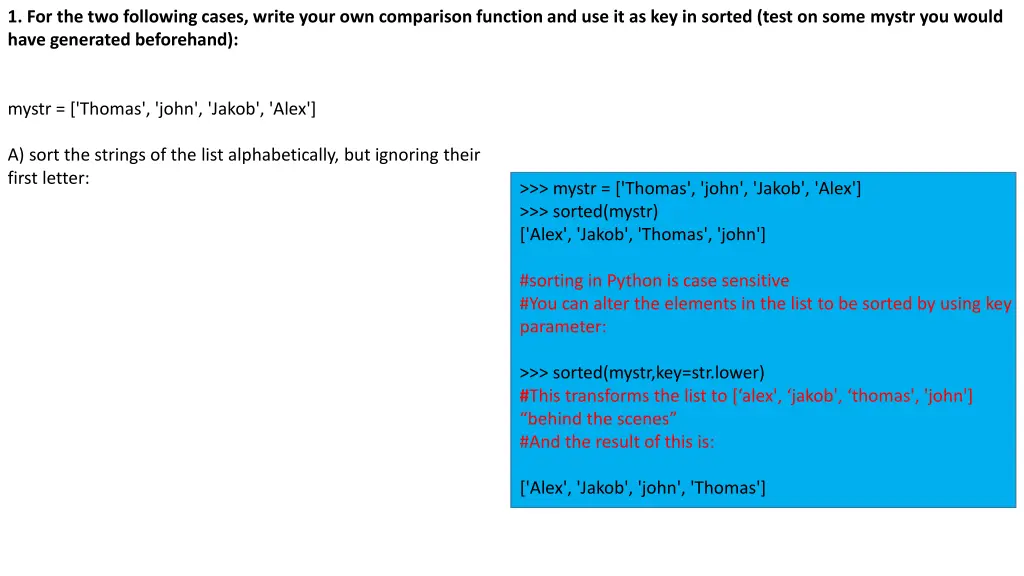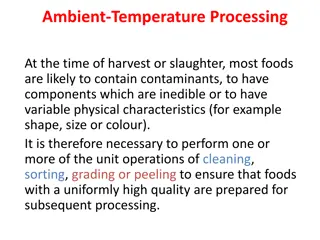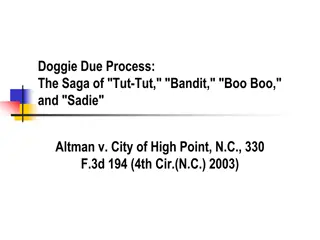
Comparison Functions in Python for Sorting Lists with Examples
Learn how to create and use custom comparison functions in Python to sort lists based on specific criteria. Explore examples to sort strings alphabetically while ignoring the first letter and sort strings by length. Improve your Python sorting skills with practical implementations.
Download Presentation

Please find below an Image/Link to download the presentation.
The content on the website is provided AS IS for your information and personal use only. It may not be sold, licensed, or shared on other websites without obtaining consent from the author. If you encounter any issues during the download, it is possible that the publisher has removed the file from their server.
You are allowed to download the files provided on this website for personal or commercial use, subject to the condition that they are used lawfully. All files are the property of their respective owners.
The content on the website is provided AS IS for your information and personal use only. It may not be sold, licensed, or shared on other websites without obtaining consent from the author.
E N D
Presentation Transcript
1. For the two following cases, write your own comparison function and use it as key in sorted (test on some mystr you would have generated beforehand): mystr = ['Thomas', 'john', 'Jakob', 'Alex'] A) sort the strings of the list alphabetically, but ignoring their first letter: >>> mystr = ['Thomas', 'john', 'Jakob', 'Alex'] >>> sorted(mystr) ['Alex', 'Jakob', 'Thomas', 'john'] #sorting in Python is case sensitive #You can alter the elements in the list to be sorted by using key parameter: >>> sorted(mystr,key=str.lower) #This transforms the list to [ alex', jakob', thomas', 'john'] behind the scenes #And the result of this is: ['Alex', 'Jakob', 'john', 'Thomas']
1. For the two following cases, write your own comparison function and use it as key in sorted (test on some mystr you would have generated beforehand): mystr = ['Thomas', 'john', 'Jakob', 'Alex'] A) sort the strings of the list alphabetically, but ignoring their first letter: Solution: def my_cmp(input_str): return input_str[1:] >>> mystr = ['Thomas', 'john', 'Jakob', 'Alex'] >>> sorted(mystr) ['Alex', 'Jakob', 'Thomas', 'john'] #sorting in Python is case sensitive #You can alter the elements in the list to be sorted by using key parameter: sorted(mystr, key=my_cmp) ['Jakob', 'Thomas', 'Alex', 'john'] >>> sorted(mystr,key=str.lower) #This transforms the list to [ alex', jakob', thomas', 'john'] behind the scenes #And the result of this is: ['Alex', 'Jakob', 'john', 'Thomas']
1. For the two following cases, write your own comparison function and use it as key in sorted (test on some mystr you would have generated beforehand): mystr = ['Thomas', 'john', 'Jakob', 'Alex'] B) sort strings of the list according to their length. >>> mystr = ['Thomas', 'john', 'Jakob', 'Alex'] >>> sorted(mystr) ['Alex', 'Jakob', 'Thomas', 'john'] #sorting in Python is case sensitive #You can alter the elements in the list to be sorted by using key parameter: >>> sorted(mystr,key=str.lower) #This transforms the list to [ alex', jakob', thomas', 'john'] behind the scenes #And the result of this is: ['Alex', 'Jakob', 'john', 'Thomas']
1. For the two following cases, write your own comparison function and use it as key in sorted (test on some mystr you would have generated beforehand): mystr = ['Thomas', 'john', 'Jakob', 'Alex'] B) sort strings of the list according to their length. Solution: def my_cmp2(input_str): return len(input_str) >>> mystr = ['Thomas', 'john', 'Jakob', 'Alex'] >>> sorted(mystr) ['Alex', 'Jakob', 'Thomas', 'john'] #sorting in Python is case sensitive #You can alter the elements in the list to be sorted by using key parameter: sorted(mystr,key=my_cmp2) ['john', 'Alex', 'Jakob', 'Thomas'] >>> sorted(mystr,key=str.lower) #This transforms the list to [ alex', jakob', thomas', 'john'] behind the scenes #And the result of this is: ['Alex', 'Jakob', 'john', 'Thomas']
2. Write a function insertion_sort that will implement the insertion sorting algorithm. The principle of this sorting algorithm is simple: starting from a float list inlist to be sorted, the elements of inlist will be extracted one at a time, and placed into a new list outlist (originally empty) such that outlist always remain a sorted list. For example, using inlist = [5, 36, 14, 7.2], the algorithm would first extract 5 from inlist and place it in outlist = [5]. Then it would extract 36 and place it in outlist = [5, 36]. Then it would extract 14 and place it in outlist = [5, 14, 36]. Finally, it would extract 7.2 and place it in outlist = [5, 7.2, 14, 36]. The algorithm stops when all elements of inlist have been extracted.
2. Write a function insertion_sort that will implement the insertion sorting algorithm. The principle of this sorting algorithm is simple: starting from a float list inlist to be sorted, the elements of inlist will be extracted one at a time, and placed into a new list outlist (originally empty) such that outlist always remain a sorted list. For example, using inlist = [5, 36, 14, 7.2], the algorithm would first extract 5 from inlist and place it in outlist = [5]. Then it would extract 36 and place it in outlist = [5, 36]. Then it would extract 14 and place it in outlist = [5, 14, 36]. Finally, it would extract 7.2 and place it in outlist = [5, 7.2, 14, 36]. The algorithm stops when all elements of inlist have been extracted. def insertion_sort(inlist): """ Implements the insertion sort algorithm takes as input a ( possibly ) unsorted list and outputs the corresponding sorted list """ outlist = [inlist[0]] # for all the elements in the input list for j in range(1, len(inlist)): # identify where this element needs to be placed in the current sorted output list i=0 while outlist[i] < inlist[j]: i += 1 # go out of the loop in case you reached the end of the list if i == len(outlist): break outlist.insert(i, inlist[j]) return outlist






















